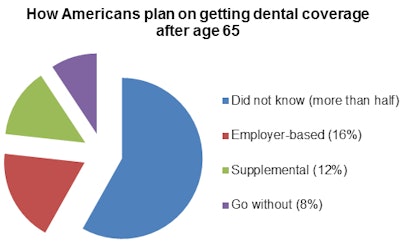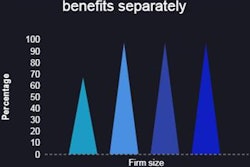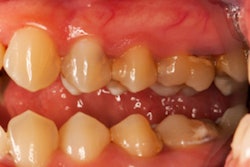
Almost 40% of U.S. adults between the ages of 50 and 64 cited pain and other health problems because of an oral health issue in a recent poll conducted by the University of Michigan. Perhaps more worrying, however, is that 13% of respondents said they expected Medicare or Medicaid to cover their dental care when they are older.
Nearly 40% of more than 1,000 U.S. adults in this age grouping reported dental pain, difficulty eating, missing work, or another health problem related to dental problems, according to the University of Michigan National Poll on Healthy Aging report.
"Traditional Medicare does not cover dental care, and many states offer very limited or no dental coverage for adults with Medicaid," noted poll director Preeti Malani, MD, in a statement accompanying the report.
Dr. Malani is a professor of internal medicine and an infectious disease specialist at the University of Michigan Medical School.
Embarrassed
The poll results come from an April 2017 online survey of more than 2,000 older U.S. adults ages 50 to 80. The authors of the poll reported responses from just over 1,000 adults ages 50 to 64. The University of Michigan Institute for Healthcare Policy with support from the AARP conducted the poll to identify key issues to help improve oral care practice and increase the number of patients who participate in preventive care.
“Our findings highlight a stark divide among middle-aged Americans in terms of their oral health now and a real uncertainty about how they will get and pay for care as they age.”
A third of respondents between the ages of 50 and 64 said they were "embarrassed" by the condition of their teeth, and 38% reported pain, difficulty eating, missed work, and other health problems because of dental issues.
More positively, 60% of those surveyed were getting regular dental and preventive care, but 17% sought preventive dental care only occasionally.
The researchers also noted that that men, African-Americans, Hispanics, those with lower incomes, or those without insurance were more likely to seek dental care for problems only. While those who were female, white, had higher incomes, or had insurance were more likely to take a preventive approach.
However, paying for oral healthcare both at present and in the future was a concern for the survey respondents, as 28% did not have dental insurance at present, and twice that number said they only sought care for serious dental problems. More than half of the respondents said they did not know how they would be getting dental coverage after age 65. See other results in the chart below.

The poll results show middle-aged Americans are not sure how they will obtain dental care in the future, according to Erica Solway, PhD, the associate poll director.
"Our findings highlight a stark divide among middle-aged Americans in terms of their oral health now and a real uncertainty about how they will get and pay for care as they age," Solway noted.



















